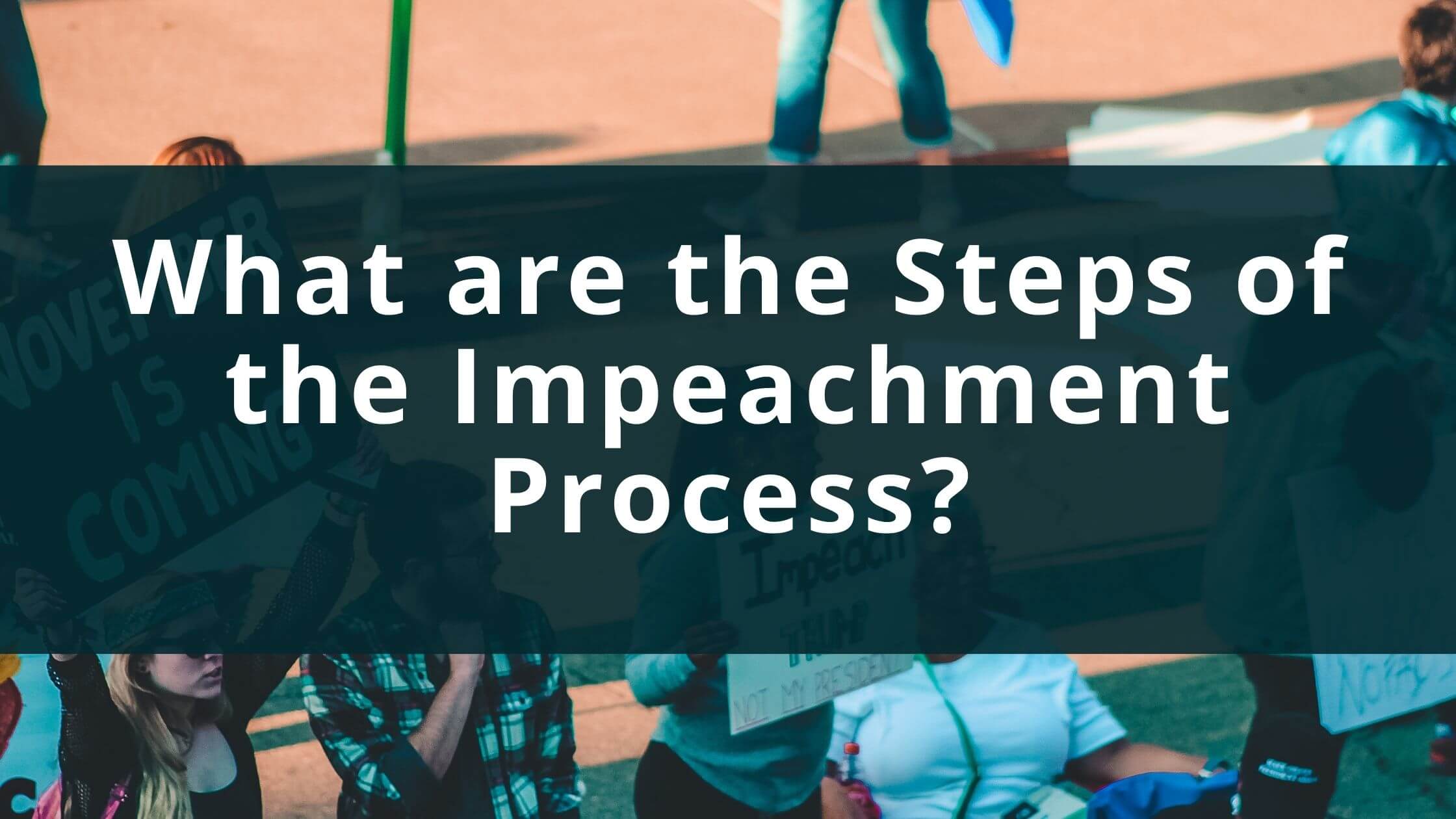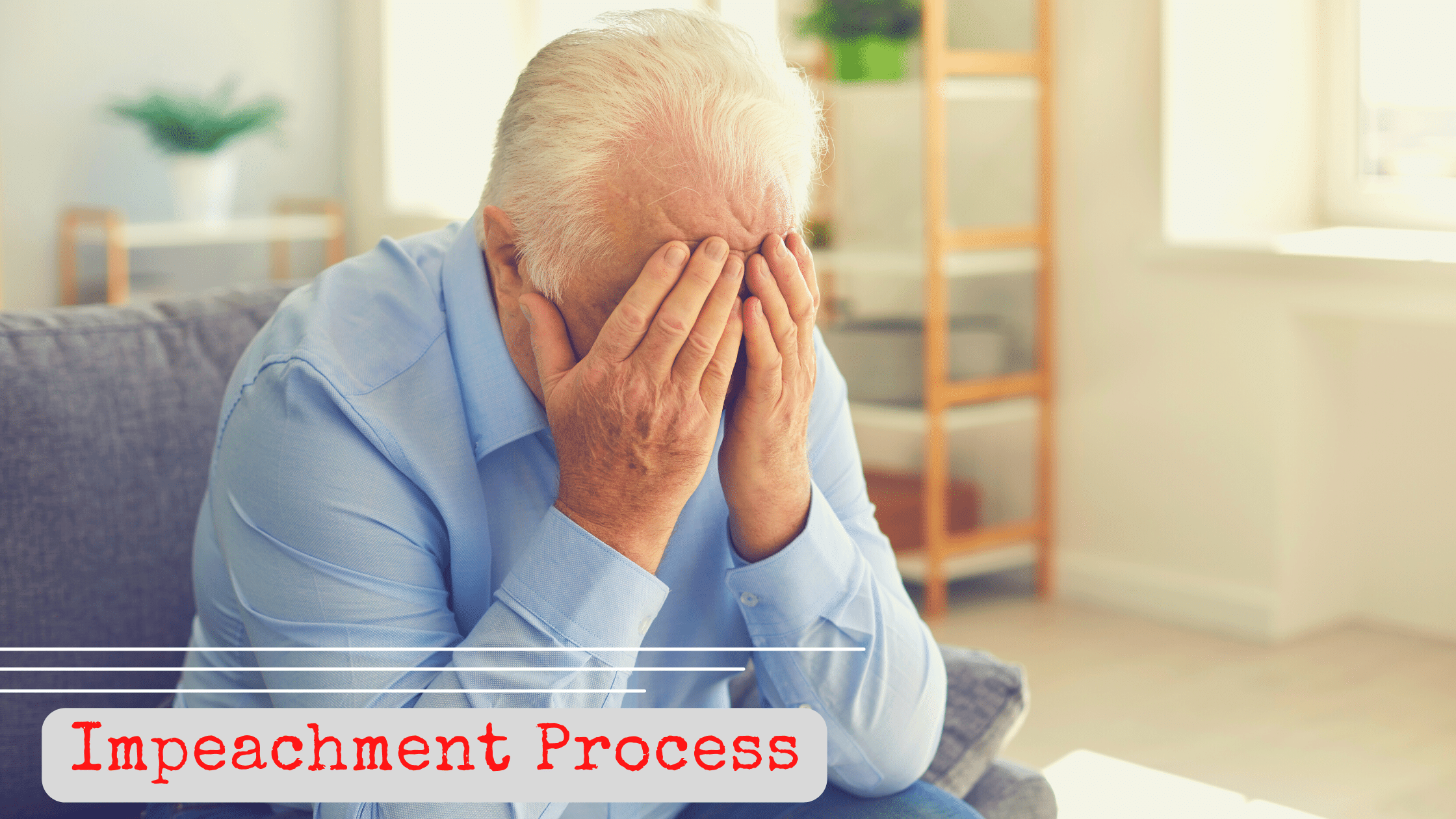Table of Contents
ToggleSources
- https://www.archives.gov/founding-docs/constitution-transcript
The National Archives provides the official transcript of the U.S. Constitution, which is the primary source for understanding the impeachment process as outlined in Article 1, Section 2 and Article 2, Section 4. - https://www.senate.gov/about/powers-procedures/impeachment.htm
The official U.S. Senate website details the Senate's role in impeachment trials, including historical context and procedural information, which directly supports the post's explanation of Senate proceedings. - https://www.history.com/topics/us-government/impeachment-in-us-history
History.com provides authoritative historical context on impeachment cases in U.S. history, including details about the impeachment processes of presidents like Bill Clinton, which is referenced in the blog post. - https://www.law.cornell.edu/constitution/articleii#section4
Cornell Law School's Legal Information Institute offers a detailed breakdown of Article II, Section 4 of the Constitution, which defines the grounds for impeachment ('Treason, Bribery, or other high Crimes and Misdemeanors'). - https://www.congress.gov/resources/display/content/Impeachment
The official U.S. Congress website provides resources on impeachment procedures, including the roles of the House and Senate, which directly supports the post's explanation of the impeachment process.
Key Points
- The House of Representatives has the power to start the impeachment process, while the Senate tries the cases.
- Impeachment is a checks and balances tool to hold leaders accountable and discourage abuse of power.
- Impeachment differs from censure as it includes the threat of removal from office.
- Not just the President, but also the Vice-President and all civil officers can be impeached.
- Grounds for impeachment include bribery, treason, and other high crimes and misdemeanors.
- Treason involves levying war against the U.S. or aiding enemies without Congressional approval.
- High crimes and misdemeanors is a broad term, making it challenging to define and prosecute.
- The impeachment process requires a 2/3 majority vote in the House to charge and in the Senate to convict.
- The penalty for impeachment is removal from office, with possible additional bans from holding future offices.
- There is no appeal process for impeachment, but civil court proceedings can follow for additional penalties.
Summary
The U.S. Constitution grants the House of Representatives the power to initiate impeachment, while the Senate conducts the trial, ensuring checks and balances. Impeachable offenses include treason, bribery, and "high crimes and misdemeanors," with removal from office as the primary penalty. The process requires a two-thirds majority vote in both chambers, and while impeachment doesn't involve jail time, separate legal actions can follow.
Resources about Impeachment:
Who has the Power to Impeach?
Article 1, Section 2 of the United States Constitution gives The House of Representatives the power to start the impeachment process. For a balance of power and democracy, the United States Senate reviews the information and investigates and tries all impeachment cases.
What is Impeachment?
The right to impeach a leader of the United States is part of the built-in checks and balances system. It helps keep everyone accountable for their actions. The purpose is to discourage those in office from taking advantage of their position, its power, or engaging in behaviors that would cause the citizens to no longer trust them.
Impeachment differs from censure as there is a threat of removal from office upon conviction, while censure is more of a public condemnation for members of Congress who have engaged in errant behavior.
Who can be Impeached?
Many people believe only the President of the United States can be impeached. Perhaps this is because most of the cases in history have involved someone in that role. Under the constitution, the Vice-President and all civil officers can face an impeachment trial if there are grounds.
Grounds for Impeachment
A person in such positions can only be impeached if it is believed they have engaged in one or more of the following.
- Bribery
- Treason
- Other high crimes and misdemeanors
Bribery involves taking money or other benefits in exchange for certain behaviors, for example, voting a certain way to gain benefits from the other party. Bribery can be hard to prove for impeachment to take place. There can be speculation, but solid proof is required to get enough votes to send it to the United States Senate.

Treason is a most serious offense for someone in office and involves one of two elements. The first is levying war against the United States.

Get Smarter on US News, History, and the Constitution
Join the thousands of fellow patriots who rely on our 5-minute newsletter to stay informed on the key events and trends that shaped our nation's past and continue to shape its present.
War doesn’t have to be declared for this type of impeachment to move forward. There must be evidence that the political figure intends to help overthrow their government. The other element for treason can be providing aid or comfort to another country.
There are times when the United States comes to the aid of other countries. However, it is against the law to do so for personal gain or to help overthrow the government. This can include providing financial perks to another country, weapons, or other items of value.
For it to be an impeachable offense, these acts have to committed without the approval of others in Congress. The checks and balances system prevents such decisions from being made solely by one individual or a small group of individuals.
The definition of high crimes and misdemeanors is broad. It has been the subject of debate in various scenarios. There is no black and white element to it under the constitution. This can make it challenging to get someone impeached for behaviors that fall under that umbrella.
Proceedings
A specific order of events takes place under the constitution during the impeachment process. First, the House of Representatives charges the individual with a specific impeachable offense or offenses. They must have at least 2/3 majority vote in the house to charge them. The charges are referred to as Articles of Impeachment.

This information is sent to the Senate from the House of Representatives and any supporting information. It is then entirely up to Senators to decide whether to proceed with a Senate trial. They carefully review the information and evidence presented to them. They often contact witnesses to ask them questions and hear testimony.
Once they have completed their investigation, a vote is taken in the Senate. The vote determines if the individual is impeached or not. If the decision is to impeach, the next step is a Senate impeachment trial. Prosecutors for the Senate are referred to as managers.
When the President is the one facing impeachment, the Chief Justice of the United States is the prosecutor for the trial. There must be a 2/3 vote in the Senate for impeachment.
Punishment when someone is Impeached
The penalty for impeachment is removal from office. The Senate has the option of imposing additional consequences that prevent the individual from holding certain offices for a given period of time. In some scenarios, they are banned from holding the position of a civil officer again.
There is no appeal process for impeachment. Fines and jail time can’t be imposed through impeachment. However, if it is deemed necessary, additional court proceedings can take place. This is done through the civil court system.
What Does the Constitution Say About Impeachment? Quiz
Frequently Asked Questions
Who has the power to start the impeachment process in the United States?
What is the difference between impeachment and censure?
Who can be impeached under the United States Constitution?
What are the grounds for impeachment?
What is the penalty for impeachment?
How useful was this post?
Click on a star to rate it!
Average rating / 5. Vote count:
No votes so far! Be the first to rate this post.
We are sorry that this post was not useful for you!
Let us improve this post!
Tell us how we can improve this post?






